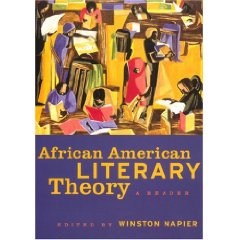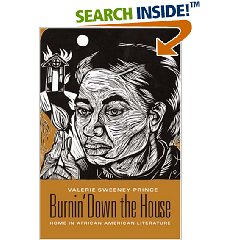A Tiny Revival of Interest in Professional Writing
 Twenty years ago I wanted to be a freelance writer (and, sorry, I’m going to deliberately confuse freelance writing with being a novelist). My background in the sciences—which made for me a background in personal computing—prevented this. My American thoughts were simple: the wages earned as a writer for machines (computer programming) has met and exceeded the annual earnings of the average freelance writer. What made this move away from mass-market writing ‘easier’ were the systematic destruction of journalism (as recognized by Edward R. Murrow and Ida B. Wells) and the erosion of the small literary press for the multi-national, bling-bling press.
Twenty years ago I wanted to be a freelance writer (and, sorry, I’m going to deliberately confuse freelance writing with being a novelist). My background in the sciences—which made for me a background in personal computing—prevented this. My American thoughts were simple: the wages earned as a writer for machines (computer programming) has met and exceeded the annual earnings of the average freelance writer. What made this move away from mass-market writing ‘easier’ were the systematic destruction of journalism (as recognized by Edward R. Murrow and Ida B. Wells) and the erosion of the small literary press for the multi-national, bling-bling press.
The intellectual violence I committed in a previous post (which I followed up in another post) was a learning experience. My homeboy, Dr. Darryl B. Dickson-Carr, who has been a professor of some kind of literature for almost twenty years, sent me an update to help me understand why I got beat down so quickly and vigorously. I finally must take seriously that there is something called a “literary market” and something called a “commercial market”—and the fans of the commercial world will kick your mufukkin ass for bagging on their favorite books. It is clear to me that eager readers of MTV Books are like satisfied iPhone customers. They are not interested in the fact that something is fundamentally wrong with the telecom system in the United States. They are not particularly limited by the “digital rights management” system of Apple’s walled garden. These are not insults. I have even had heterosexual intercourse with some of these satisfied, adult Apple customers. No insult. This is just recognition of non-interest.
So the update from my homey directed me to “How to Become a Bestseller” from the now defunct/archival niggerati.com from Mat Johnson. He lets me know through the parable of Harlan Coben that the “debate” among African American literati is real—and real avoidable:
This is particularly fascinating considering our debates in African American lit about what is genre writing and what is literature. In Coben we find an author who is completely conscious of what his position in the publishing universe is, and embraces it. Instead of seeing his massive commercial success as proof of his work’s artistic genius, he maintains a realistic grounded understanding of his career. His job is to write gripping thrillers that play on our fears for ourselves and our families in a way that is both engaging, gripping, and comfortably repetitive. His job is not to give a social message, or waist time with character beyond the archetypes. It’s to create books that are fun and familiar, just like his last book his audience loved but just new enough that they can buy it and repeat the thrill.
… Unlike some Black commercial fiction authors of late who have cried racism in response to the refusal of their publishers to accept manuscripts outside the author’s existing genre and audience, Coben does not confuse corporate reality for anything other than what it is. If you sell oranges, and you have regular clients who come just for your oranges, you can’t just start selling beets and think that won’t effect business.
I am almost certain that Mat Johnson will agree that when you call a Black commercial fiction author an orange seller you will be accused of being a haterating, elitist loser. So in one case the author cries racism and in my case this same author can call me a crab in a barrel. This failure to understand the market and how one is actually participating in it can be called a simple disagreement.
Through Mat Johnson came directly and indirectly these links:
- The 2008 Callaloo Creative Writing Workshops: “The Callaloo Creative Writing Workshops, a project of the literary journal Callaloo, are designed to assist new and developing writers by providing intensive and individual instruction in the writing of fiction and poetry.”
- Hurston/Wright Award for College Writers: “Hurston/Wright Writers’ Week is the nation’s only multi-genre summer writer’s workshop for writers of African descent with a tuition-free component for high school students. Since the first workshop in the summer of 1996, over 850 writers have attended the weeklong program of classes and presentations by publishers, agents, and writers.”
- WritersMarket.com: “…the Internet’s most comprehensive guide to getting published. Since 1921, Writer’s Market has been the ‘freelance writer’s bible’, providing contact information for thousands of editors and agents, tips on manuscripts formatting, query letter clinics and more. And now it’s all available online, in a searchable database of information that can be personalized to meet your specific market needs.”
 I studied the Writer’s Market series for years during my twenties but I produced less than a handful of manuscripts that could ‘fit’ into the unsolicited guidelines. Many of the offerings demanded a literary agent. This meant (and could still mean) living for a time in New York—which is environmentally unappealing to me. Importantly, this means having a drive based on some kind of basic respect for the system in which the publishing business operates. I have been unable to authentically possess or manufacture what is required of me in the two previous sentences.
I studied the Writer’s Market series for years during my twenties but I produced less than a handful of manuscripts that could ‘fit’ into the unsolicited guidelines. Many of the offerings demanded a literary agent. This meant (and could still mean) living for a time in New York—which is environmentally unappealing to me. Importantly, this means having a drive based on some kind of basic respect for the system in which the publishing business operates. I have been unable to authentically possess or manufacture what is required of me in the two previous sentences.
To explain myself, I like to use the illustration of the actor that can’t get work. When an actor cries and cries about not getting work, I ask them a simple question, ‘What production have you seen in the last year that you felt passionately about being a part of?’ Because I ask this question of Black actors who consider themselves serious artists as they come from the theater, the answer to my question is not very easy. This leads to my next question, ‘Would you rather the studio cut you a check for sitting at home instead of actually working on the show?’ My answer to this question is cut the check—and this is why I have spent last 10 to 15 years writing for machines as a computer programmer and not for properly assimilated humans—these people are my superiors of course.
 Since I have been not preoccupied with starving to death over these years and (really) I am not a sulking egomaniac, I have taken the time to study, as much as I can, hundreds and hundreds of artist lives to understand what it means to have fans, what the concept of fame really is and what it means to be truly understood as the communicating artist. The image of the Beatles standing on stage with their music drowned out by screaming fans illuminates the ultimate fantasy for the soul craving any kind of attention—it is a frickin’ devastating nightmare for the artist that demands to be understood (even with the lowest level of precision). The inaccuracy of millions of “fans” cannot match the precision of one person—in my case one woman—that has a strong, instinctive, intellectual understanding of me as a person of creativity.
Since I have been not preoccupied with starving to death over these years and (really) I am not a sulking egomaniac, I have taken the time to study, as much as I can, hundreds and hundreds of artist lives to understand what it means to have fans, what the concept of fame really is and what it means to be truly understood as the communicating artist. The image of the Beatles standing on stage with their music drowned out by screaming fans illuminates the ultimate fantasy for the soul craving any kind of attention—it is a frickin’ devastating nightmare for the artist that demands to be understood (even with the lowest level of precision). The inaccuracy of millions of “fans” cannot match the precision of one person—in my case one woman—that has a strong, instinctive, intellectual understanding of me as a person of creativity.
Dr. Margo Crawford, co-editor of New Thoughts on the Black Arts Movement, who is now for years not my friend, taught me one very, very important thing about being a so-called artist. It is better to produce work that is addressed to one particular person (maybe three) within a complete life that is independent of the after-hours of North American entertainment business. When the business wants to come in later and pay a fee to share (and distort) retroactively in the real-life moment that’s fine—but it is an error of soulfulness to produce work intended for n-number of adoring fans. Understand quickly, n-word, that when you perform shit like that, you are in the oranges business on the campaign trail trying to be the next Black President.
Serving a “Mass” audience is a bunch of 900-foot-Jesus, army-recruitment-propaganda bullshit to me. St. Crispin’s Day! Repurposing a “mass” medium to truly connect with one person (maybe two) makes more sense.

Comments
achali, 2008-09-10 19:40:45
"The inaccuracy of millions of “fans” cannot match the precision of one person"
amen
Toni Shrader, 2008-09-11 18:39:32
Well, I'll say you tell it like it is! Yes, it is always more fulfilling to please or entertain a few special people who you know will follow you consistently than to reach for the masses who will just as quickly turn on you. Great post about a subject which few care to address.
rasx(), 2008-09-12 17:41:24
Actually it was a pop star that got me going about this when I was a teenager: Prince. He said that he does not have "fans"---which, he reminds, us means "fanatics"...